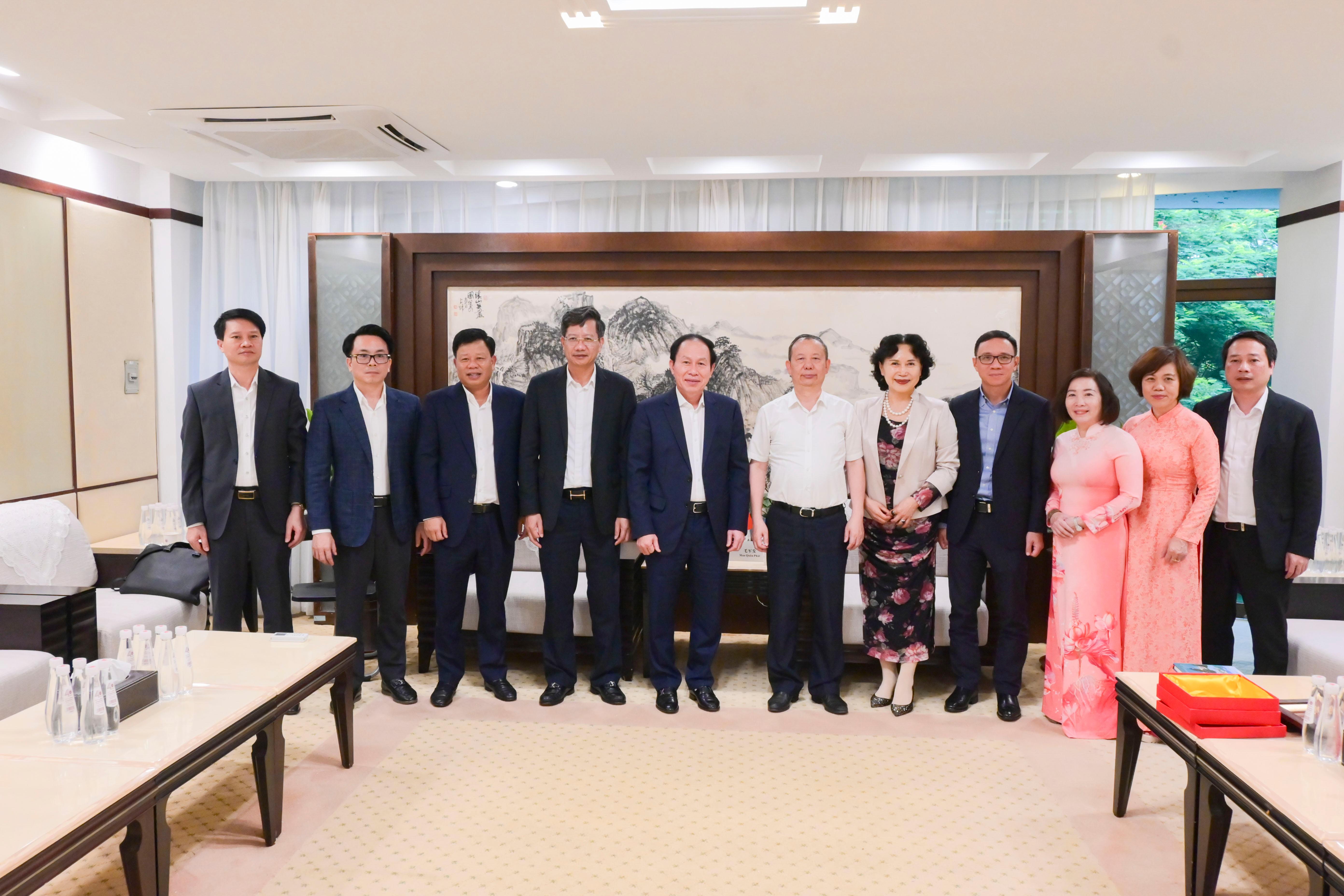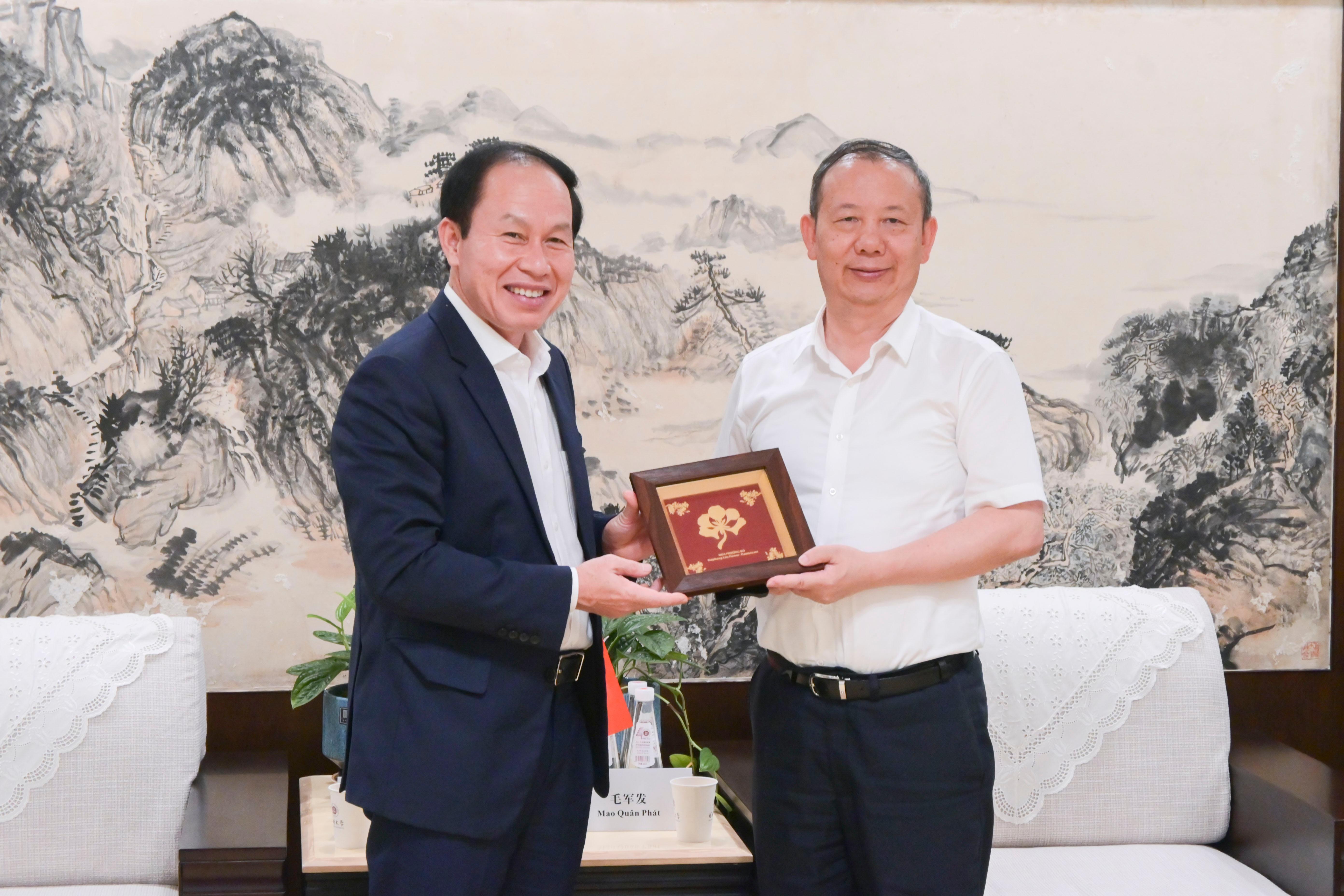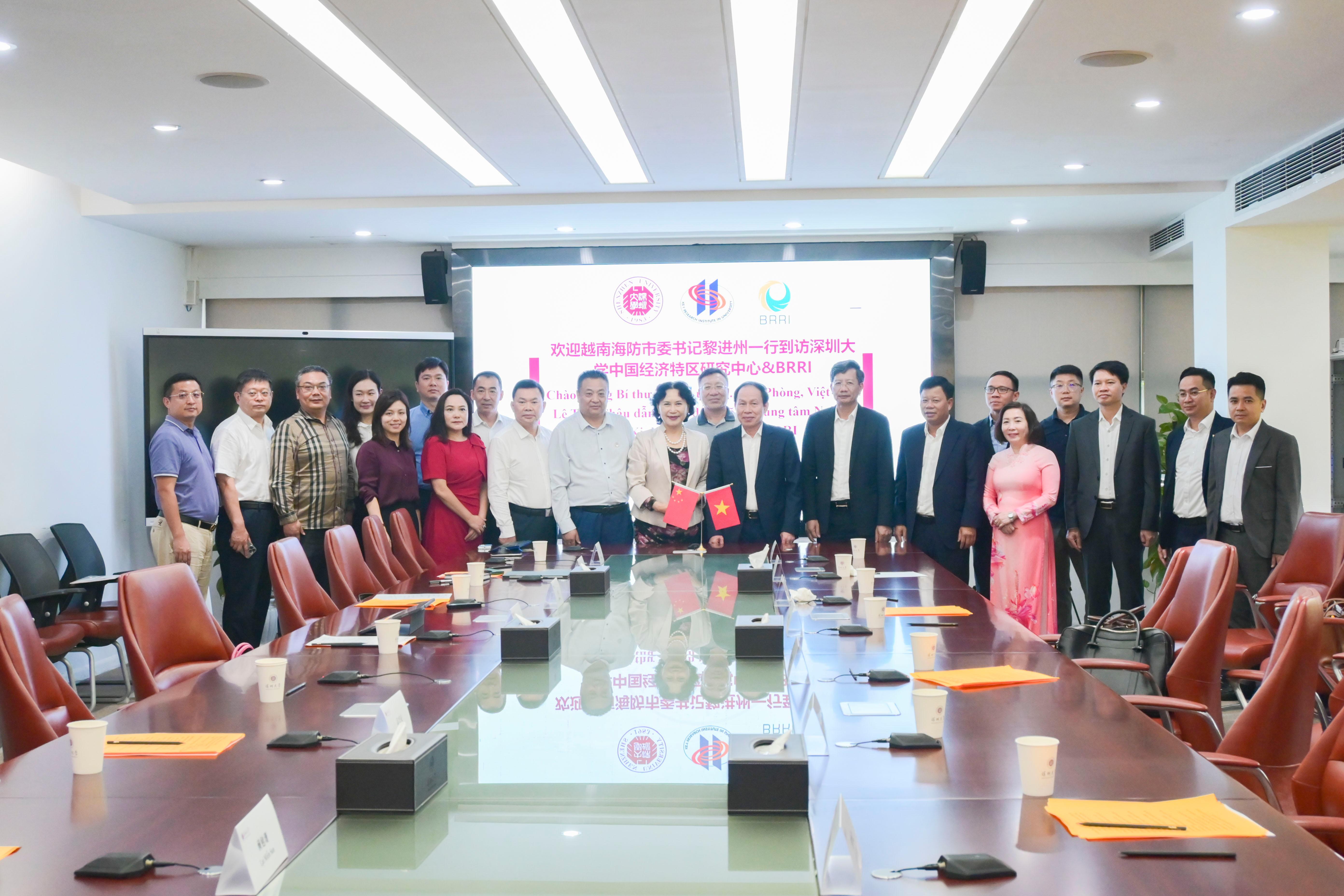On the afternoon of August 5, a delegation from Haiphong, Vietnam, visited the China Center for Special Economic Zone Research (CCSEZR) at Shenzhen University (SZU), where both sides held a meeting in Room 201 of the Huiyuan Building. The delegation of over 30 members was led by Le Tien Chau, a member of the Central Committee of the Communist Party of Vietnam, Secretary of the Haiphong Municipal Party Committee, and head of the Haiphong National Assembly Delegation, along with Dao Trong Duc, a member of the Standing Committee of the Haiphong Municipal Party Committee and Chairman of the Vietnam Fatherland Front Committee in Haiphong. Attendees of the meeting also included SZU President Mao Junfa, Academician of the Chinese Academy of Sciences; Vice President Wang Yongcheng; officials from the Belt and Road Research Institute (Shenzhen) for International Cooperation and Development; CCSEZR representatives; as well as experts, scholars, and entrepreneurs in related fields.


President Mao Junfa welcomed the delegation, providing an overview of SZU's background, its growth over the past 41 years, and its major achievements. He highlighted that SZU, the city's only comprehensive university, has developed in tandem with the thriving growth of the Shenzhen Special Economic Zone (SEZ), achieving remarkable progress in enrollment, academic quality, talent cultivation, and research. Mr. Mao emphasized that SZU is a young and vibrant institution. Situated in the dynamic environment of the SEZ, the University has closely aligned with the development needs of this reform-oriented city and the Guangdong-Hong Kong-Macao Greater Bay Area. SZU is committed to cultivating top talent for regional development, bolstering the region's development capability, and providing intellectual support for scientific and technological innovation. These efforts have made SZU a powerful engine for the city's innovative growth. Mr. Mao expressed his hope that universities in both cities would strengthen their cooperation, particularly regarding major strategies for regional economic and social development. He emphasized the importance of seizing new opportunities, leveraging each other's strengths, and achieving shared success.
Le Tien Chau expressed gratitude on behalf of the delegation for the warm welcome and hospitality extended by SZU. He commended the University's rapid development, scale, and educational excellence, as well as the CCSEZR's achievements in global special economic zone research. Mr. Le also shared updates on Haiphong's progress and challenges in developing free trade zones. The Haiphong government prioritizes the development of free trade zones and is actively promoting relevant policies and projects. He particularly emphasized the city's strong commitment to establishing its first free trade zone and expressed hope for strengthened future collaboration between Haiphong's universities and SZU in economics, culture, and education.
During the meeting, Tao Yitao, Director of the CCSEZR and Dean of the Belt and Road Research Institute (Shenzhen) for International Cooperation and Development, expressed her gratitude to Le Tien Chau for his support. She acknowledged the mutual trust and cooperation between the two regions in economic development and the related initiatives that have been undertaken. She also expressed optimism about future progress. Additionally, Ms. Tao provided both theoretical and practical insights into the construction, development, and management of special economic zones. She also engaged in detailed coordination regarding the preparations for Haiphong's first pilot free trade zone.

The guests, experts, scholars, and business representatives engaged in detailed discussions about preferential policies, development opportunities, and investment prospects related to free trade zones. Attendees shared their insights and experiences, particularly offering valuable suggestions for the development of Haiphong's free trade zones. By discussing specific cases of China's free trade zones, both parties gained a clearer understanding of the development path for Haiphong's free trade zones.
The meeting laid a strong foundation for enhancing collaboration between both sides in the development of special economic zones. Both sides have also committed to collaborating on more practical projects, providing greater learning and development opportunities for students from both countries.

